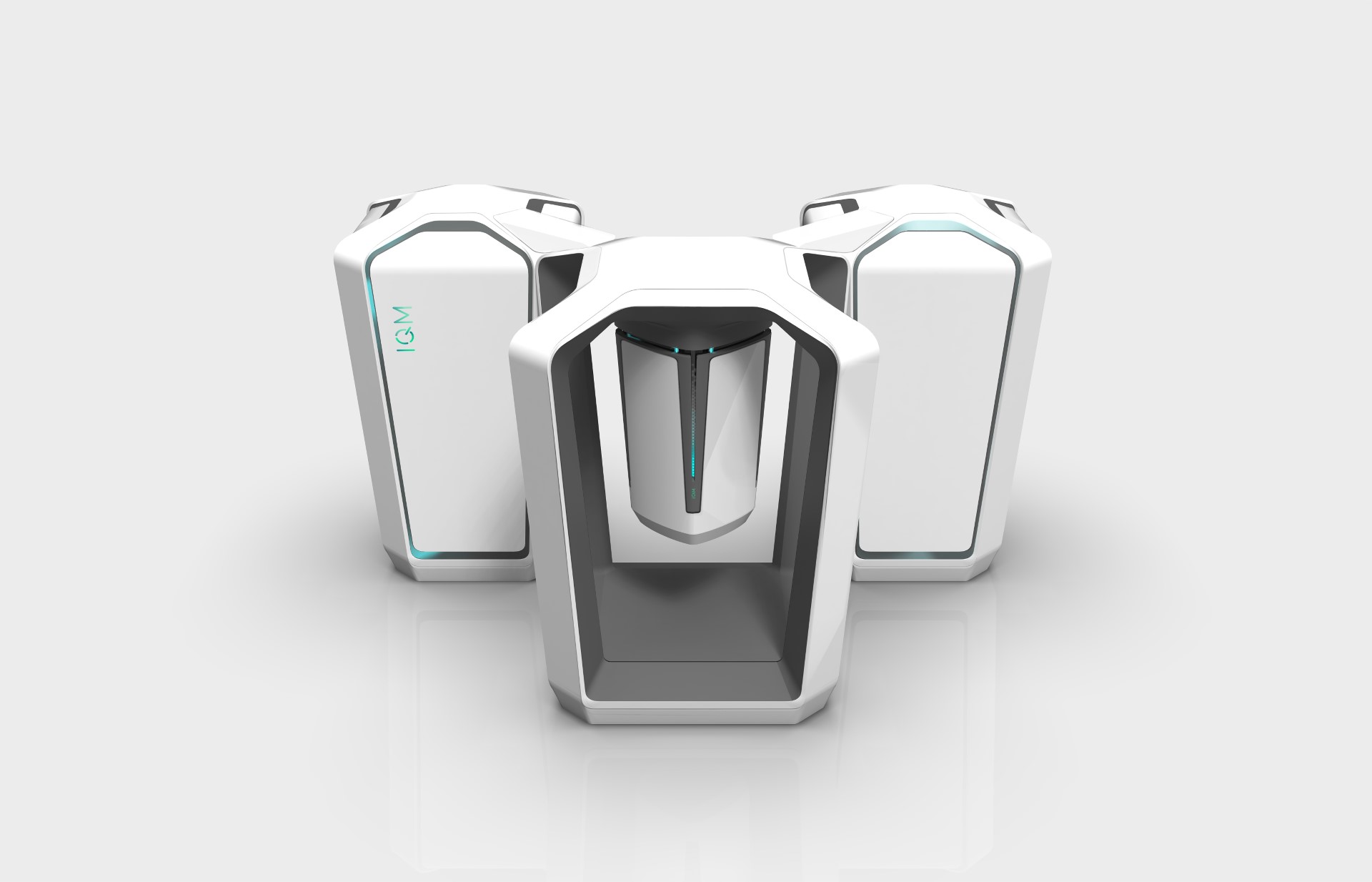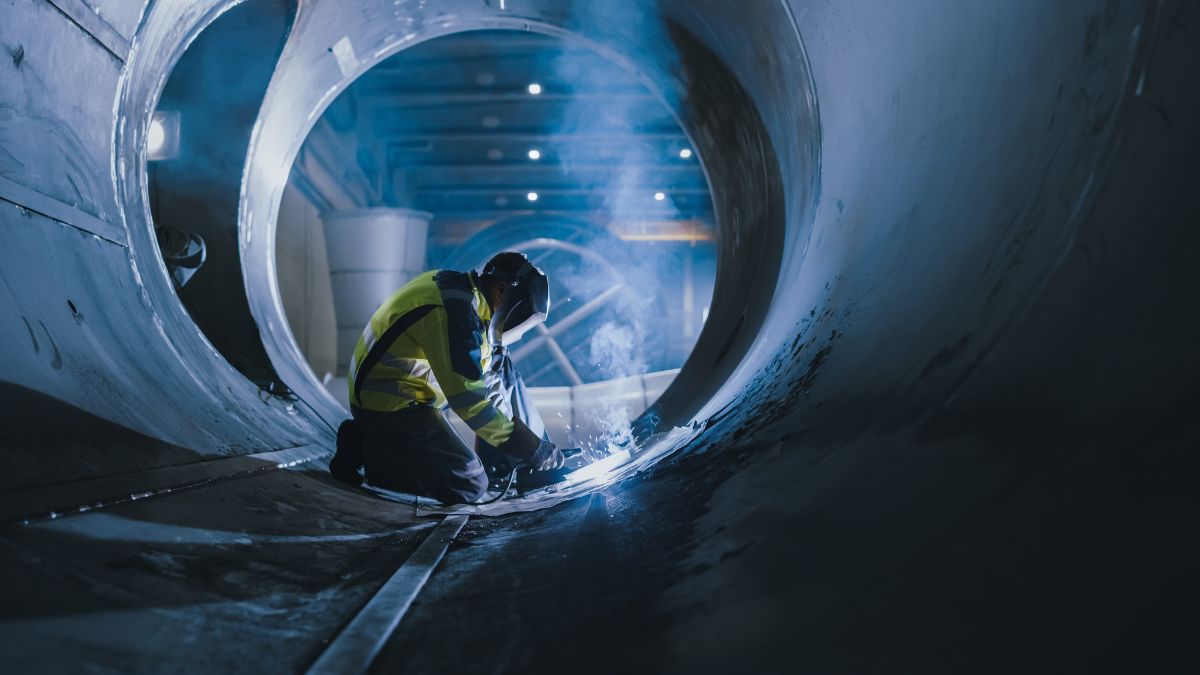IQM is a relatively young company, founded in 2018 as a spinoff from Aalto University and VTT Technical Research Centre of Finland. However, when asked about the company’s history from IQM’s co-founder Juha Vartiainen, we return to the year 2001. At that time, Vartiainen attended a lecture on quantum computing by a visiting Japanese professor at the then Helsinki University of Technology along with IQM’s other co-founder, Mikko Möttönen. Both became so intrigued by quantum science that Vartiainen ended up writing his doctoral thesis on the subject, while Möttönen pursued an academic career to delve deeper into it.
Fast forward to 2018. The idea of starting a company began to take shape when Risto Siilasmaa visited Möttönen’s research laboratory and predicted that the technology being developed could have commercial potential. However, the real enthusiasm took place a few months later when Ilyas Khan, the founder of Cambridge Quantum Computing, not only echoed Siilasmaa’s comment but added that similar projects worldwide had raised up to 50 million euros in funding. The idea simmered for a week until Möttönen and Vartiainen met during their children’s floorball game, and soon after, Vartiainen also committed to joining the venture.
IQM’s goal is to develop a commercially viable quantum computer that relies on the utilisation of quantum superpositions. By leveraging this principle, the unparalleled computing speed of quantum computers will be able to solve problems that are currently impossible for current computers. In the future, quantum computing could be integral in drug development, optimising stock portfolios, and even help tackling the climate crisis.
Seed Round Jackpot
Once the decision of establishing the company was made, the first step was to raise funding and meet with investors. Among them was Ilkka Kivimäki, founder of the venture capital firm Maki.vc. Even though IQM’s impressive work had already left a lasting impression on Kivimäki, the funding amount sought by the company was too large for Maki.vc to become the lead investor.
After a year of effort, Vartiainen and Möttönen managed to find a lead investor for their funding round, and they reached out to the Maki.vc team again.
“At the time, the general expectation was that quantum computers didn’t work. When I received a call saying that they had found a lead investor and that there was room for Maki to join the funding round, we had some careful discussions whether we should get involved. However, our idea is not to seek the safe and easy target – we are interested in the more unusual ventures that not everyone has the courage to be a part of”, Kivimäki recalls.
Investors on IQM’s first funding round included Matadero QED, Maki.vc, MIG Funds, OpenOcean, Tesi, and Vito Ventures, with a final round size of 11.5 million euros. While Vartiainen and Möttönen still had the 50 million in mind Khan had mentioned about, they acknowledged that the raised amount was still better than nothing — until they realised that it was the largest seed-stage investment that a Finnish startup had ever raised.
Going All In at Full Speed
Building a strong team has been crucial for IQM from the beginning. The company decided to invest in recruitment and bring young researchers on the field on board.
“We went all in, meaning we got a good amount of money and invested everything in building a strong team and getting the best equipment”, Vartiainen says.
How did IQM manage to attract top experts in the field when the company was still in its early stages? According to Vartiainen, it was the company’s convincing story that served as its business card.
“At first, we were just “nobodies”, but we got people on board with our story. Eventually, our team became more attractive, and young researchers saw that they could make a name for themselves at IQM.”
Vartiainen points out that IQM’s early journey differs from many other spinoff companies in that they did not remain as a small university research group. Instead, alongside product development, they set out to build a large and ambitious company.
“The key to our success has surely been our forward-thinking attitude. We didn’t play it safe, we went all in,” summarises Vartiainen.
Support From Investors Plays a Key Part
Maki.vc has been supporting IQM’s growth since the very first funding round and their role has been crucial especially in the early stages. Maki has been involved in helping with initial key recruitments and building IQM’s brand.
In a research-based startup, the investor’s role has also included occasional reminders concerning sales efforts:
“It’s good that in the midst of all this enthusiasm for technology, someone reminds us that putting effort into sales is important. This has guided us in the right direction in business development”, Vartiainen notes.
“In addition to this, opening doors and the investor networks have been extremely valuable to us,” he continues.
Through Maki’s networks, IQM has been able to convey its message to government officials, allowing decision-makers to see the company’s potential firsthand.
However, matters related to technological development have been left in the capable hands of IQM’s team.
“This is a rare case for us, and we’ve had very few opinions regarding the technological side — it is quite next-level stuff we’re dealing with,” Kivimäki chuckles.
IQM has, in other respects as well, stood out among Maki’s portfolio with its complexity, which surprised Kivimäki even after the investment decision.
“In IQM, you get 15 startups in one go. A company like this requires an incredible amount of deep expertise, and everything has to work seamlessly together. The complexity in this company is astonishing, and you can’t fully comprehend it until you see it for yourself,” Kivimäki explains.
Towards the Quantum Advantage and Beyond
Currently, quantum computers are not yet capable of commercially significant practical applications, but Vartiainen explains that the company’s current commercial goal is to acquire customers and sell the idea of quantum computers to governments of different countries, for example.
“Right now, we’re talking about interest in the technology. In a few years, when we reach the quantum advantage—the point at which quantum computers far surpass previous systems and can be used to solve commercially valuable problems—the product will become commercially attractive, and we’ll see tremendous growth figures”, Vartiainen explains.
IQM’s success story is significant not only on its own but also on a national scale:
“New entire industries like the one we are building do not emerge very often, especially in Finland. Our goal is for our production facility in Espoo to become, if not the world’s, at least Europe’s best,“ Vartiainen concludes.
IQM has raised over 200 million euros in venture capital to date, with its most recent funding round of 128 million euros in 2022. Kivimäki’s confidence in the company has been strong from the very beginning.
“With IQM, we embarked on solving things for which no one had any guarantees of success. There has been a strong trust that we are dealing with the very best in the field, and we have set out to solve the equation together,“ Kivimäki says, adding, “In an incredibly short time, a functional product has been created in a field, where complexity is at its maximum. It’s a remarkable achievement and a testament to the determination of IQM’s team. It has already been quite a story so far, and the future holds tremendous opportunities.”
***
The article is part of the Finnish Venture Capital Association’s and PwC’s Building Growth Competition of 2023 blog series, where we present the stories of the competition finalists. You can find more information about the competition here!

